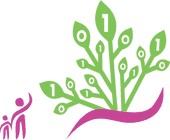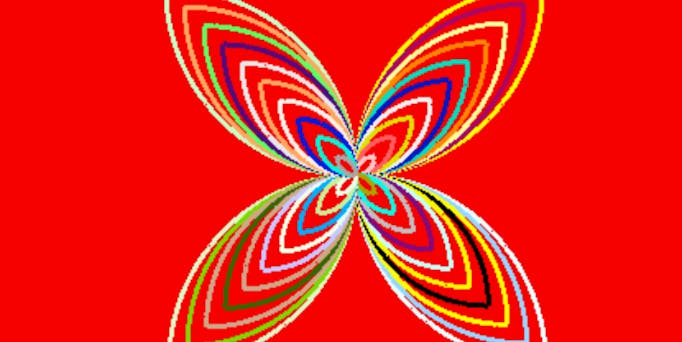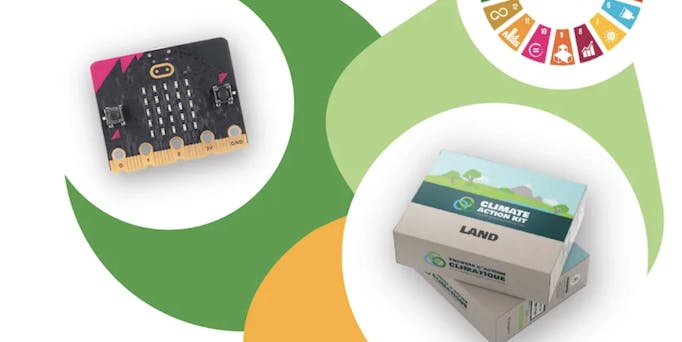Code to Learn Programs
Designed with inclusivity, cultural relevance, social justice and regional curriculum in mind, our coding & robotics programs are offered free to K-12 classrooms across subject areas.

.png?ixlib=gatsbyFP&auto=compress%2Cformat&fit=max&w=483&h=314)
Search by Key Learnings
Search Programs

Terry Fox - A Tribute to a Canadian Hero
Key Learnings: Coding, Robotics, K-12, PBL, Computational Thinking
Code the route that Terry Fox took during his Marathon of Hope. Compare how many steps you can run to what Terry Fox ran. Students use a micro:bit to count their actual steps!
Suggested Grade Levels: 5 and up

The Beauty of Mathematics
Key Learnings: Coding, K-12, Math, Art, PBL, Games, Computational Thinking
Let your students amaze you with their mathematical minds as they create art with turtle geometry!
The activities for 'The Beauty of Mathematics' are organized into four series:
- The Art of the LYNX Series
- The Probabilities Series
- The Project Guide Series
- LYNX Book: Projects for Learning to Code
Suggested Grade Levels: 3 and up
Coding Project Offerings
Code To Learn offers coding opportunities in many programming languages. We use MakeCode, EarSketch (Python), Weavly, and quite frequently LYNX!
LYNX is a text-based, cloud-based coding environment that is the natural next step for kids that are ready to move on from using blocks to code but might not be quite ready to use more complex programming languages like Python or JavaScript.
LYNX is Canadian-made by the company founded by Seymour Papert—the father of educational computing. It is available in Canadian English, French, Ojibwe, Mi'kmaw, Oji-Cree, Mohawk, with other Indigenous languages to come. Check out LYNXcoding.club
In addition to the project offerings, the LYNX team is:
- training FNMI students in LYNX Coding in their own language
- creating LYNX Coding in Indigenous Languages
- developing educational materials to support provincial curricula


The Secret Path - A Message of ReconciliACTION Through Code
Key Learnings: Coding, K-12, PBL, Indigenous Studies, Reconciliation, Computational Thinking
Students will learn about the life of Chanie Wenjack through Gord Downie’s Secret Path animated movie. Students will then create messages of ReconciliACTION using text, images, animation, and the music of Gord Downie. LYNX text-based coding will provide the platform for students to express their creativity.
Suggested Grade Levels: 5 and up

#IKMath -- Indigenous Ways of Knowing Mathematics
Key Learnings: Coding, K-12, Math, Art, PBL, Indigenous Studies, Reconciliation, Computational Thinking
This project continues to build on the work of a multi-year, multi-site Indigenous mathematics research study, which is designed in response to a Canada-wide call from Ministries of Education that recognized the need to explicitly incorporate Indigenous content in order to support identity building and appreciation of Indigenous perspectives and values. It explores the interaction between LYNX coding and Indigenous design, technology, and artistry (loom beading, Métis finger weaving, medallions). This work reflects culturally responsive and relevant mathematics instruction in K-12 classrooms.
Suggested Grade Levels: 3 and up

Your Voice is Power: Remix Beats. Learn Code. Promote Equity.
Key Learnings: Coding, Reconciliation, Indigenous Studies, PBL, Music, Computational Thinking, Indigenous Studies, Reconciliation
Your Voice is Power is a national competition for middle and high school students designed to teach the fundamentals of computer science, entrepreneurship, and social justice. Using the EarSketch platform, students get creative to remix songs from Indigenous artists and use what they have learned from the provided course outline.
Students will remix songs from 3 Indigenous artists—Dakota Bear, Jayli Wolf, and Samian—while taking inspiration from the social justice themes demonstrated in their work.
Check out our exclusive Amazon Music Playlist, with recurring themes of perseverance, the power of will, and steadfast determination toward a better future when faced with obstacles from a bleak past.
With support from Logics Academy!
Suggested Grade Levels: 6 and up
- Request free Professional Development for your staff — susani@takingitglobal.org
- Request a free classroom visit (virtual or in-person) for your students — susani@takingitglobal.org

Your Voice is Power: What is the role of AI in Songwriting?
Key Learnings: Coding, Indigenous Studies, Music, Indigenous Studies, AI
In this lesson students gain the knowledge required to critically assess the role of AI in the songwriting process through hands-on exercises and the exploration of generative AI technology and ethics.
This lesson is split into two sections
- Songwriting. In this section students will: Learn privacy best practices when using generative AI; Use a Songwriter Bot to generate lyrics and discover limitations of generative AI such as hallucinations and bias. Compose a 2-4 line chorus for a song about an Indigenous role model of their choice without using AI.
- Evaluate AI Songwriting. In this section students will: Learn how to write a prompt for generative AI; Learn and reflect on plagiarism and copyright with respect to AI; Listen to the opinions of an Indigenous songwriter on AI as a songwriting tool; Generate lyrics for a song about their selected Indigenous role model and compare the generated lyrics to the lyrics they composed without AI; Learn about plagiarism and reflect on appropriate use of AI for schoolwork.
With support from Logics Academy!
Suggested Grade Levels: 5 and up
- Request free Professional Development for your staff — susani@takingitglobal.org
- Request a free classroom visit (virtual or in-person) for your students — susani@takingitglobal.org

Your Voice is Power: What is AI?
Key Learnings: Coding, AI
Learn the fundamentals of AI, how to recognize it and how it works!
This workshop will provide you and your students with a strong foundation in Artificial Intelligence.
In this workshop, students learn
- How to recognize traditional AI and Generative AI
- How AI is trained to recognize patterns and uses those patterns to make predictions
- Limitations and ethical considerations of AI
Suggested Grade Levels: 4 and up
- Request free Professional Development for your staff — susani@takingitglobal.org
- Request a free classroom visit (virtual) for your students — susani@takingitglobal.org

Coding for Climate
Key Learnings: Coding, Robotics, SDG (Sustainable Development Goals), K-12, Science, Climate, PBL, Computational Thinking, Digital Skills
The Climate Action Kit is a micro:bit powered inventor's kit designed to introduce students to coding and robotics. The goal of the kit is to provide purpose-driven learning experiences by connecting real-world climate change issues with tangible robotic solutions.
Using the robotic components in the kit (provided to you at no cost), students can build, prototype, and program their own working solutions to meaningful climate change issues.
Suggested Grade Levels: 5 and up

C21 Canada AI Milestone Webinar Series
Key Learnings: Coding, Artificial Intelligence, Robotics, SDG (Sustainable Development Goals), K-12, Computational Thinking, Digital Skills
C21 is a national non-profit advocating for 21st-century learning models and is working to ensure Artificial Intelligence projects align with school district needs across the country. This partnership will help us stay at the forefront of educational innovation, supporting teachers and students as they navigate the evolving digital landscape.
The results of these case studies will be shared through the C21 Canada AI Milestone Webinar Series. These are professional learning opportunities led by C21 Canada CEO Academy, CIO Alliance and Board Advisors based on current daily classroom practice experienced by teachers at the district level.
For further information, contact robert.martellacci@c21canada.org
.png?ixlib=gatsbyFP&auto=compress%2Cformat&fit=max&q=100&w=300&h=84)
